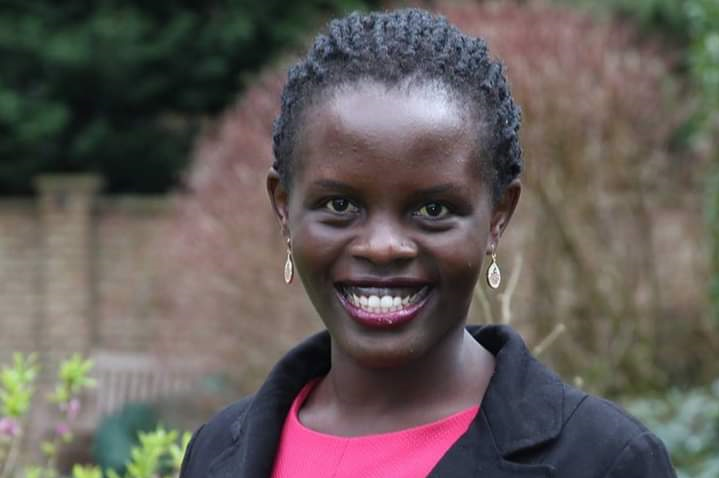Meet the Birkbeck law students in receipt of prestigious scholarships to aid them in their journey to becoming barristers.
Law students hoping to become barristers must undertake the Bar Professional Training Course, which serves as the vocational stage of training required for entry to the Bar of England and Wales. Upon successful completion of their course, graduates are eligible to be called to the Bar and embark on their careers as barristers.
This year, two students from Birkbeck’s Law School have been awarded prestigious scholarships towards their Bar courses by the Honourable Society of the Inner Temple, one of the four renowned Inns of Court. Membership in one of these Inns is a prerequisite for individuals aspiring to be called to the Bar and pursue a career as a barrister in England and Wales.
Viran Solanki, studying LLB Law at Birkbeck, and recipient of Middle Temple’s Jerry Parthab Singh Scholarship to help fund his Bar Course.
What attracted you to studying law?
I have worked in various roles within the court service since 2018, initially at a County Court and currently at the First-tier Tribunal (Immigration & Asylum Chamber). Witnessing first hand on a day-to- day basis the way in which barristers used their specialist knowledge to make a real difference in an individual or family’s lives motivated me to pursue a career in law.
day basis the way in which barristers used their specialist knowledge to make a real difference in an individual or family’s lives motivated me to pursue a career in law.
Why did you choose to study Law at Birkbeck?
The flexible studying options really appealed. Studying here allowed me to work full-time while studying across four years in the evenings.
With the flexibility afforded to you through your studies, how do you spend your days? My full time is as a Legal Officer in the First-tier Tribunal (Immigration & Asylum Officer). This involves working to delegated judicial functions to effectively case manage immigration appeals, identifying and resolving barriers to case progression. I’ve also found that I’ve been applying legal research skills learnt at Birkbeck to real world scenarios to communicate complex procedural matters in a simple way. I have also presided in several Case Management Appointment hearings, with the goal of effectively narrowing issues in dispute and ensuring compliance prior to a substantive appeal hearing.
What’s been your favourite thing about your academic journey so far?
The opportunity to meet new people from all kinds of backgrounds and careers has been wonderful. I definitely would not have achieved much throughout the last few years without the support of colleagues and tutors!
What are your plans for the future?
Results permitting, I plan on studying the Bar Course at the Inns of Court College of Advocacy from September 2024, following which the plan is to find pupillage and qualify as a barrister specialising in immigration law!
How do you think law can make a difference in the world?
People generally interact with the face of the law when they are in need and often at a low point in their life, be it after an arrest or as a victim of crime, a particularly bitter family dispute or in an immigration context as they flee persecution in their home country. Law makes a difference for these people by ensuring that they are able to have the fairest assessment of their dispute or issue. I hope that by developing skills grounded in my studies at Birkbeck, I will be able to contribute to assisting those that are in need.
What does the scholarship mean to you?
The scholarship means a lot! Of course, the financial assistance towards the paying of fees for the Bar Course is greatly appreciated, but also coming through a difficult application and interview process has in a sense validated the long nights at the library and studies leading up to this point. Being awarded the scholarship has reiterated the sense that the path towards becoming a barrister is the right one for me, and has motivated me to continue to strive towards this goal.
Jack Soares Mullen, studying the Graduate Diploma in Law at Birkbeck and recipient of Middle Temple’s Harmsworth scholarship which will fully cover his Bar Course.
What attracted you to studying law?
I worked as a teacher for three years and then, two years ago, changed careers and joined the civil service. In my current role I work for the Judicial Office and work closely with a number of judges which has exposed me to the workings of the justice system, and this sparked an interest in becoming a barrister.
Why did you choose to study Law at Birkbeck?
I wanted to be able to continue working in my current role and, with classes held in the evening, Birkbeck provided the perfect opportunity to study alongside my work commitments.
With your classes taking place in the evenings, how do you spend your days?
I’ve continued to work full-time alongside studying full time this year which takes up most of time. Even so, I have managed to complete two mini pupillages and marshalled some judges this academic year. A highlight was marshalling two high court judges at Bristol Crown Court, observing two complex murder trials.
What’s been your favourite thing about your academic journey so far?
I loved representing the university at the Michael Corkery Criminal Law Moot. I was sure I wanted to become a criminal barrister once I took the course, and getting to test my advocacy skills alongside my fantastic mooting partner, Emma, was great fun and a real adrenaline rush. I can’t recommend to other students the value of taking up mooting opportunities – particularly if they are looking to get a pupillage at the bar.
What are your plans for the future?
I was fortunate enough to receive a scholarship for my GDL (law conversion course) from Middle Temple and then another scholarship to study the bar course, which I will begin in September this year. I’ve also managed to secure a pupillage at a well-respected criminal chambers, 2 Hare Court, for September 2025 so, if all goes well, I will begin my career at the bar there then.
How do you hope to make a difference in the world?
I hope that becoming a criminal barrister will give me the opportunity to make a difference in people’s lives. Whether someone is a complainant, defendant or witness, when someone encounters the criminal justice system it is likely to be a stressful moment, and for some, a very difficult moment of their lives. Being able to guide people through the process and present their position to the court is a valuable and exciting thing to do. Perhaps unlike other areas of law, crime will always have people at the centre no matter how serious the offence. Therefore, even at the earliest stages in my career, every day in court will matter to somebody and make a real difference in their world.
What does the scholarship mean to you?
The scholarship is invaluable to me, because the journey to the bar can be an expensive one. Securing scholarships for both the GDL and bar course has meant I haven’t taken on any debt and removed that barrier. Scholarships from the inns are also a useful stamp of approval for any aspiring barrister when applying for pupillage. They show that at least one panel of barristers and judges believes that you are capable of a career at the bar. Knowing this has given me some confidence that I’ve chosen the right path, particularly given how competitive it is to get pupillage and tenancy.
More information:





